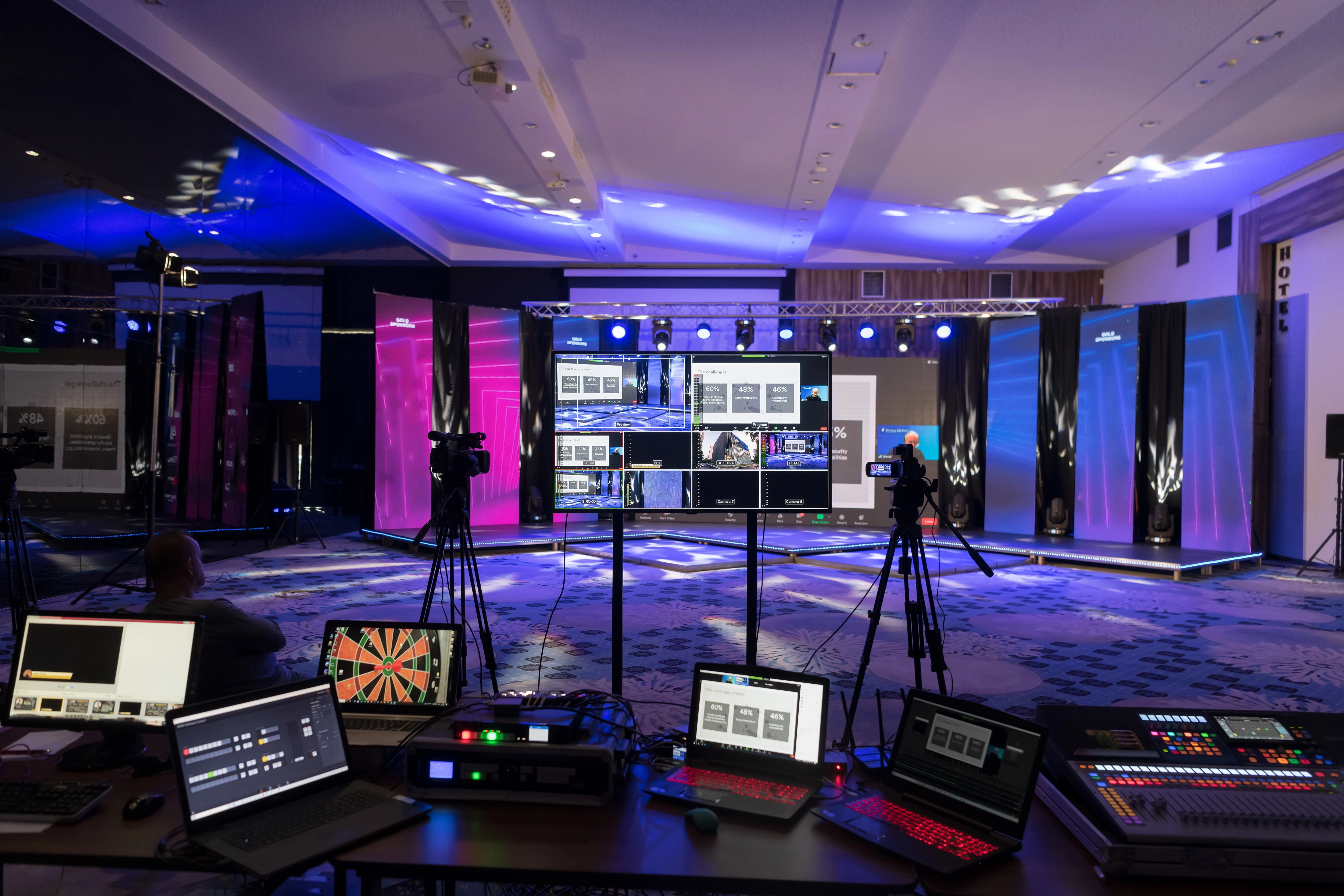Budget-Friendly Ideas to Improve Your Event Productions
Budget-Friendly Ideas to Improve Your Event Productions
Blog Article
Comprehending Exactly How Occasions Manufacturing Functions: A Comprehensive Introduction of the Process
The intricacies of occasion manufacturing demand a methodical technique that incorporates several phases, each playing a critical duty in the general success of an event. Comprehending the nuances of budgeting, resource allocation, and on-site administration is crucial for any kind of professional in this field.
Initial Planning and Concept Growth
Reliable initial preparation and idea development act as the structure for effective occasions manufacturing. This phase entails defining the occasion's function, target market, and preferred end results. A clear vision is important; it guides all succeeding choices and aids line up the group's efforts towards a common goal.
During this phase, brainstorming sessions can be important. Engaging stakeholders, including customers, sponsors, and possible attendees, promotes a collaborative environment that generates ingenious concepts. Furthermore, comprehensive marketing research should be performed to understand patterns, choices, and possible challenges.
When the concept is developed, it is vital to create a detailed occasion summary. This synopsis must consist of the event's style, style, and key activities. Developing a timeline is just as essential, as it aids to handle tasks and deadlines properly.
Budgeting and Resource Allowance
With a solid idea in place, attention needs to turn to budgeting and resource allocation, which are vital parts in executing the event successfully. A well-defined spending plan serves as a roadmap, outlining all expected prices and available resources - Event Productions.
Resource allocation includes appointing both economic and human sources to different tasks and components of the occasion. Prioritization is crucial; crucial components need to receive appropriate funding while much less crucial aspects may call for a much more traditional technique. Backup preparation is important-- assigning a part of the budget for unforeseen expenses can minimize monetary threats.
On top of that, reliable communication amongst team participants regarding spending plan restraints fosters partnership and development. This promotes the responsible use resources and urges imaginative services to stay within spending plan. Ultimately, a strategic method to budgeting and resource allotment prepares for a successful occasion, making it possible for organizers to concentrate on delivering a remarkable experience for attendees while maintaining financial honesty.
Logistics and Sychronisation
Navigating the complexities of logistics and control is necessary for the smooth execution of any type of occasion. This phase includes careful planning and company to make certain that all components work in consistency. Crucial element consist of location selection, transportation arrangements, and the organizing of numerous activities.
Reliable logistics starts with a comprehensive assessment of the location's capacities and limitations. This consists of recognizing the design, gain access to points, and available resources. Once the location is verified, transportation logistics have to be established, encompassing the movement of attendees, devices, and products. Working with these elements requires cooperation with vendors, suppliers, and transport solutions to make certain prompt shipments and pickups.
One more essential facet is the development of a thorough timeline that lays out all logistical aspects leading up to the event. This timeline functions as a roadmap, detailing key milestones and deadlines for jobs such as tools setup, providing solutions, and audiovisual installments. Routine communication with all stakeholders is important like this to deal with any prospective concerns proactively.
Implementation and On-Site Monitoring
Successful execution and on-site management are important for changing meticulous strategies into reality during an event. This phase entails the seamless coordination of various components, guaranteeing that every information aligns with the established vision. On-site supervisors play a pivotal function, working as the central factor of interaction among suppliers, personnel, and stakeholders. Their ability to make real-time choices can considerably affect the occasion's success.
A distinct routine is essential, acting as a roadmap for all tasks. Event supervisors need to ensure that arrangement happens on time, sticking to timelines for sound checks, catering shipments, and visitor arrivals. Effective analytical skills are likewise essential; unanticipated difficulties can emerge, requiring quick thinking and flexibility to keep the event's circulation.
Additionally, interest to guest experience is vital. Keeping an eye on visitor interactions, ensuring safety protocols are adhered to, and giving assistance staff to address concerns cultivates a favorable environment. This degree of engagement not just improves the overall experience but also shows special info the expertise of the event team. Event Productions. Inevitably, effective execution and on-site management rest on comprehensive preparation, effective communication, and a dedication to supplying an exceptional event for all entailed.

Post-Event Assessment and Comments
The end result of any event exists not just in its implementation but likewise in the complete evaluation that complies with. Post-event examination is important for determining the total success of the event and recognizing locations for enhancement. This process normally entails event feedback from numerous stakeholders, consisting of attendees, vendors, and group members, to obtain a comprehensive point of view on their experiences.
To structure the evaluation, occasion coordinators commonly make use of interviews and surveys, focusing on key performance indicators such as guest complete satisfaction, logistical efficiency, and budget plan adherence. Assessing this information allows planners to examine whether the event fulfilled its purposes and to recognize the strengths and weaknesses of the execution.
By methodically addressing feedback and implementing adjustments, event experts can boost their strategies, ultimately leading to even more effective and impactful events. In verdict, post-event assessment is an essential step in the event production process that makes certain ongoing growth and excellence in future undertakings (Event Productions).
Conclusion

The details of event manufacturing demand a methodical technique that integrates multiple phases, each playing a crucial function in the overall success of an event.With a solid principle in place, focus has to turn to budgeting and source allocation, which are essential elements in implementing the occasion effectively.Source allowance involves appointing both human and economic resources to numerous jobs and components of the occasion. Eventually, a strategic strategy to budgeting and resource allocation lays the foundation for a successful event, enabling planners to focus on providing a memorable experience for participants while preserving monetary integrity.

Report this page